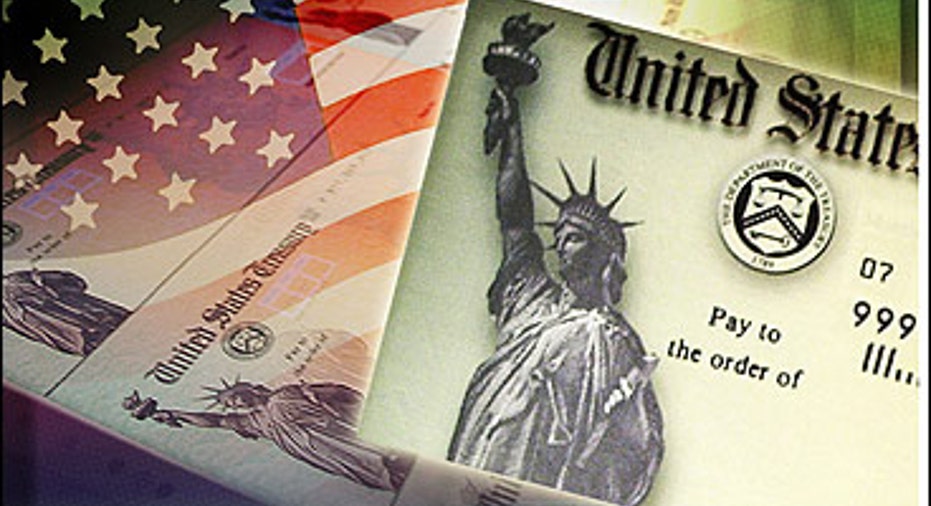9 Tax Scams Targeting Small Businesses

Con artists have small business owners in their sights this tax season. Fortunately, the IRS is letting entrepreneurs know about some common tax tricks that could trip you up.
Watch out for what the IRS says are this year’s big tax scams:
1. Scam phone calls: The IRS has seen an increase in phone scams in the past few months. Con artists impersonating IRS agents will call you and make threats including having your business license revoked, being arrested and more. By intimidating taxpayers, they try to get you to give out personal or business financial information such as Social Security numbers or Employer I.D. numbers, which they then use for illicit purposes. Never give out this type of information over the phone.
2. Phishing emails: Phony “phishing” emails or leading to realistic looking websites are another common con artist tactic to bilk you out of money. The IRS will never email you about a bill, refund or money owed. Never click on a link in an email that purports to be from the IRS. Scam artists are now able to design extremely realistic-looking fake websites to steal your information.
3. Identity theft: Taxpayers need to watch out for identity theft especially around tax time. The IRS continues to aggressively pursue the criminals that file fraudulent returns using someone else’s Social Security number. The IRS is making progress on this front but taxpayers still need to be extremely careful and do everything they can to avoid becoming a victim.
4. Fake charities: At year-end, it’s a good idea for small businesses seeking to defer income and accelerate expenses to make charitable donations to ease the tax bite. The problem comes when you get taken in by a fake organization pretending to be a legitimate charity. Always take the time to check out the status of a charitable organization before making a contribution, even if you think its name sounds familiar—scam artists typically choose names that sound almost like legitimate charitable groups.
In addition to these common scams by con artists, you can also get ripped off by your tax preparer. Here are some things to watch out for:
5. Offshore tax avoidance: If a tax preparer tries to talk you into hiding money or income in offshore banks, run the other way. If you’ve already been talked into this, it’s best to come clean by voluntarily admitting what you’ve done. The IRS has an Offshore Voluntary Disclosure Program to help people get their taxes in order. (IR-2015-09).
6. False documents: If a tax preparer suggests you hide some of your taxable income by filing false Form 1099s or other fake documents, that should set off a red flag warning.
7. Abusive tax shelters: Any tax shelter that sounds too good to be true probably is. The IRS is actively working to put an end to abusive tax shelters, and if you get caught using one, you could be in hot water.
8. Falsifying income: Some unscrupulous tax preparers may try to convince you to falsifying income to improve your tax standing. This scam can get you in hot water, as you’re legally responsible for the accuracy of the information on your return, even if someone else advised you on it.
9. Excessive claims for fuel tax credits: Very few businesses can legitimately claim this expense, since it’s most often used in farming-related businesses. But sometimes, unscrupulous tax preparers will try to talk you into claiming this credit so you can cut your tax bill or get a refund.
It pays to be on the alert at tax time. Open any mail from the IRS immediately, and use a tax preparer you are familiar with and trust.
More from AllBusiness.com:
- 10 Things to Be Grateful for as an Entrepreneur
- The Secrets to Happy Customers
- 9 Apps Entrepreneurs Love
Rieva Lesonsky is CEO of GrowBiz Media, a media and custom content company focusing on small business and entrepreneurship. Email Rieva at rieva@smallbizdaily.com , follow her on Google+
, follow her on Google+ and Twitter @Rieva
and Twitter @Rieva , and visit her website SmallBizDaily.com
, and visit her website SmallBizDaily.com to get the scoop on business trends and sign up for Rieva’s free TrendCast reports.
to get the scoop on business trends and sign up for Rieva’s free TrendCast reports.



















